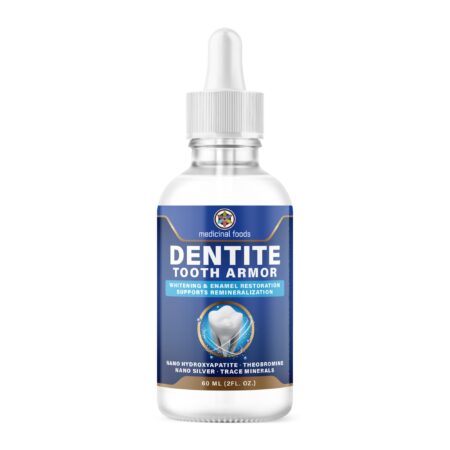Coffee itself is keto-friendly, but many coffee creamers are not, as they can be high in sugar and carbs, so we need a keto coffee creamer so that you don’t have to drink your coffee black. We have got you covered!
Keto friendly coffee creamer
There are many keto-friendly coffee creamer options that you can buy or make at home. The key is choosing a healthy option that’s made with mostly whole ingredients.
Here are some of the best store-bought and homemade keto coffee creamers for people that want to change their diet can still enjoy their coffee! To make it diet-friendly, you’re going to need to add some healthy fats, like MCT oil, coconut cream, or grass-fed butter.
Best coffee creamer for keto
Too lazy to concoct your creamer every day? The ketogenic diet’s popularity owes largely to its potential benefits for weight loss and blood sugar control. The keto diet typically limits carbs to 20–50 grams per day. While some people on keto count their total carb intake, others count net carbs, which is total carbs minus fiber. That’s because fiber is indigestible, so it can’t be broken down and absorbed by your body.
Is coffee creamer keto?
Keto friendly coffee creamer is made with MCT oil, ghee, coconut oil, cacao butter, and sunflower lecithin to create a creamy, high-fat creamer to help promote ketosis.
MCTs, or medium-chain triglycerides, are a type of saturated fat that is better for ketone production and maintaining ketosis than long-chain fatty acids. Ketosis is a metabolic state in which your body breaks down fat into molecules called ketones, which are used for energy when your glucose or sugar — supply is limited.
Here’s the potential problem, though. Well over one-third of coffee drinkers take cream or milk in their coffee. That number soars to more than two-thirds when you include sugar or sweeteners in the list of coffee additives.
Sugar can add way too many carbs to a low-carb diet, and as we’ve already mentioned, artificial sweeteners (except for stevia and monk fruit sweetener) are also a bad choice for ketogenic eating.
So what else can keto dieters safely add to their coffee? Milk isn’t a good choice for regular coffee drinkers on ketogenic diets.
The best coffee creamer for keto is heavy whipping cream, and it’s encouraged by many keto guidelines because it’s high in healthy fats and contains only about half the carbs of milk.
But it also contains nearly 50 calories – and calories aren’t good when you’re dieting. Some people use coconut milk instead, but it’s still high in calories.
Is coffee creamer keto? It is if you make it bulletproof coffee, also known as butter coffee and keto coffee. Bulletproof is a trademarked name.
It’s a blended combination of black coffee, MCT oil, and either grass-fed unsalted butter or ghee (a type of clarified butter).
Keto coffee is best when blended because as you probably remember from science class, water and oil don’t mix easily. The beverage doesn’t taste like you’ve added milk or cream to coffee, but many describe the taste and creaminess as similar to that of a latte.
Butter coffee’s ingredients may sound odd, but there are good reasons for using them. To make it diet-friendly, you’re going to need to add some healthy fats, like MCT oil, coconut cream, or grass-fed butter.
You probably already have all of these ingredients in your cabinets and refrigerator. There are only 7 ingredients needed to make this low-carb creamer for your coffee.
Bulletproof coffee isn’t a miracle beverage, though. A single cup can provide more than the daily recommended amount of saturated fat in a diet, so drinking more than one butter coffee a day may greatly increase the risk of high cholesterol, heart disease, and stroke.
There’s another possible issue as well: many keto dieters have a cup of bulletproof morning coffee instead of a healthy breakfast, meaning their body is being deprived of important nutrients. So bulletproof coffee may be an answer, but it isn’t the answer. Keto-friendly coffee creamers are the best everyday choice.
The keto diet may help with weight loss, blood sugar control, and other health goals. However, its low carb, the high-fat approach may seem overly restrictive, especially at first.
Nonetheless, this eating pattern accommodates a wide variety of nutritious, tasty, and versatile foods that let you stay within your daily carb range.
This is keto-friendly, but it’s also dairy-free, Whole30-compliant, and vegan. The ketogenic diet is a very low carb and high-fat diet that shares many similarities with the Atkins and low carb diets.
It involves drastically reducing carbohydrate intake and replacing it with fat. This reduction in carbs puts your body into a metabolic state called ketosis. When this happens, your body becomes incredibly efficient at burning fat for energy. It also turns fat into ketones in the liver, which can supply energy for the brain.
Different types of ketogenic diets. There are several versions of the ketogenic diet, including the Standard ketogenic diet (SKD).
This is a very low carb, moderate protein, and high-fat diet. It typically contains 70% fat, 20% protein, and only 10% carbs Cyclical ketogenic diet (CKD): This diet involves periods of higher-carb refeeds, such as 5 ketogenic days followed by 2 high carb days.
The targeted ketogenic diet (TKD): This diet allows you to add carbs around workouts. High protein ketogenic diet: This is similar to a standard ketogenic diet, but includes more protein. The ratio is often 60% fat, 35% protein, and 5% carbs.
Ketosis is a metabolic state in which your body uses fat for fuel instead of carbs. It occurs when you significantly reduce your consumption of carbohydrates, limiting your body’s supply of glucose (sugar), which is the main source of energy for the cells.
Early evidence also suggests that this low-carb, high-fat diet may help treat certain cancers, Alzheimer’s disease, and other conditions. Still, higher quality research is needed to determine this diet’s long-term safety and effectiveness.
However, only the standard and high protein ketogenic diets have been studied extensively. Cyclical or targeted ketogenic diets are more advanced methods and are primarily used by bodybuilders or athletes.
The information in this article mostly applies to the standard ketogenic diet (SKD), although many of the same principles also apply to the other versions.


















